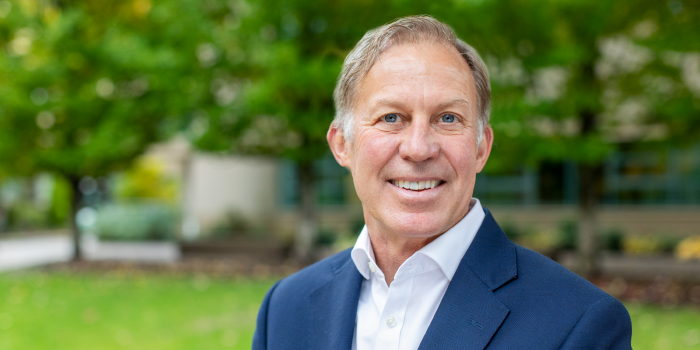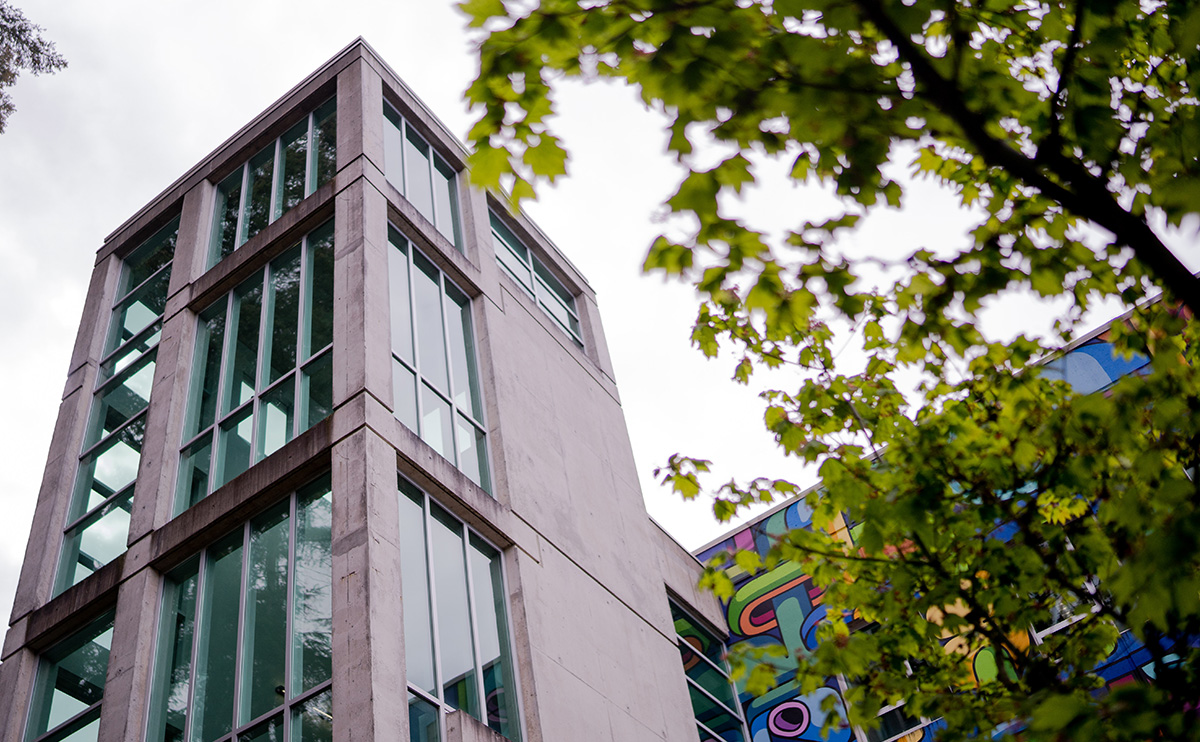This is a bimonthly newsletter featuring community updates from Capilano University President and Vice-Chancellor Paul Dangerfield.

Your thoughts and feedback are welcome: president@capilanou.ca
January 2023
Back in the spring of 2020—remember that strange time?—I heard a CBC interview with an infectious disease expert who warned Canadians that it would be at least three years until we found our “new normal” in the wake of a global pandemic. It seemed such a long way off and yet here we are, confidently making plans in our 2023 calendars!
After the turbulent seas of the past few terms, I’m happy to say that it’s full steam ahead here at Capilano University. And not a moment too soon, given B.C.’s labour market outlook indicating that our province is facing a severe skills shortage. For more than 50 years, CapU has helped meet labour market needs in B.C., but today’s demand is particularly acute: more than a million skilled positions will need filling over the next decade. With Canadians retiring in record numbers—more than 1,000 reach age 65 every day—how are we going to meet the demand?
Two words: international students.
By the numbers
Late last year, government policy-makers urged higher immigration levels to help drive economic growth and ease labour shortages. To that end, Canada plans to welcome half a million new immigrants by 2025, many of whom will likely seek to upskill or reskill at educational institutions like CapU.
According to StatsCan’s 2021 census data, Canada already has the most highly educated workforce of all G7 countries—and many of those workers earned their professional credentials and experience here as international students. Indeed, the number of international students in Canada has surged over the past decade, up from 239,000 in 2011 to more 621,000 in 2021.
At CapU, we’ve warmly welcomed international students for more than 30 years, and have seen our own international enrolment grow by 150 per cent between 2014 and 2019, though numbers declined during the pandemic. Today, roughly a third of our students come from India, Iran and China—among other countries. And Francisco Silva, manager of the Centre for International Experience (CIE) at CapU expects the number of international students to grow by 40 per cent in 2024, returning to pre-pandemic numbers once again.
Bringing diversity and unique perspectives
International students make a significant contribution to the University in very practical terms: their presence allows us to fund more courses for everyone. Based on the University's 21/22 actuals, about 35 per cent of our costs are covered by the provincial government; 20 per cent by domestic students; 15 per cent by ancillary and other revenue; and 28 per cent by international students, whose fees are not subsidized by the provincial government. Without international students, we simply could not offer the diversity of courses we do. But more importantly, international students bring new ways of thinking to our campus and our community; their unique perspectives, talents and skills add value both in and out of the classroom.
An international student experience making a difference
One of the things I am adding to my 2023 diary is my monthly sit-down with Karandeep Sanghera, an international student from India who is the current president of CapU’s student union. I am constantly struck by his good nature, intelligence and optimism: there are no limits to his ideas for how we can improve the CapU student experience, from programming and course scheduling, to better addressing food security for students. He is creative, engaged and truly committed to making a difference to the future of the University. And if that’s what he’s doing here at CapU, I am confident he will eventually be making a difference on the national stage too.
Bright futures
That is why I applaud recent changes by the federal government that make it easier for international students to study and work in Canada, and hope we will see a fast-tracking of initiatives to help them to settle and secure permanent residency more quickly. As a nation, we must embrace the value of welcoming students who will be academically, culturally and professionally prepared to take a meaningful role in Canadian society. I will leave the last word to someone with lived experience of that precise journey: Mahi Mohammadi, who came to CapU from Iran in 2019 to find a “bright future and a better life.” Today a valued member of the CIE team, Mahi anticipates becoming a permanent resident of Canada this year.
Here’s to bright beginnings for all in 2023,
Paul
Mahi Mohammadi, DDA Centre of International Experience and former CapU international student
“I came to CapU with dreams, and after my journey, my dreams became my reality.”
“I wanted to grow, so I said a huge goodbye to my culture and started with the first step at CapU. In Iran, we have totally different education. Everything that I learned in Canada was at first a kind of culture shock for me—even though I had travelled a lot and read a lot. I tried to learn everything as fast as I could but it was not an easy process. I didn’t have any days off for two years—between classes I volunteered and worked nights and holiday shifts at the airport. I ask sometimes, ‘How did I do that?,’ but I had a goal—and I just focused on that goal. I had two jobs, four courses, and 12 international student mentees. I would say to the students: no one pushed us to come to Canada; it was our decision. We saw something inside ourselves that we realized was a goal worth fighting for. Yes, you will face lots of problems but you will learn that you don’t have to be the best; you just have to not give up. You have something special to offer. Three years later, my mentees still come and hug me, I think because I could understand every single problem they faced. The relationship between international students and employee at CapU is very special. You already face so many challenges, it’s important that the place you spend six hours a day is giving you positive energy. I’m also fortunate that this positive energy carries through to my community volunteer activities outside of CapU, with a letter of recognition from Prime Minister Justin Trudeau.”

